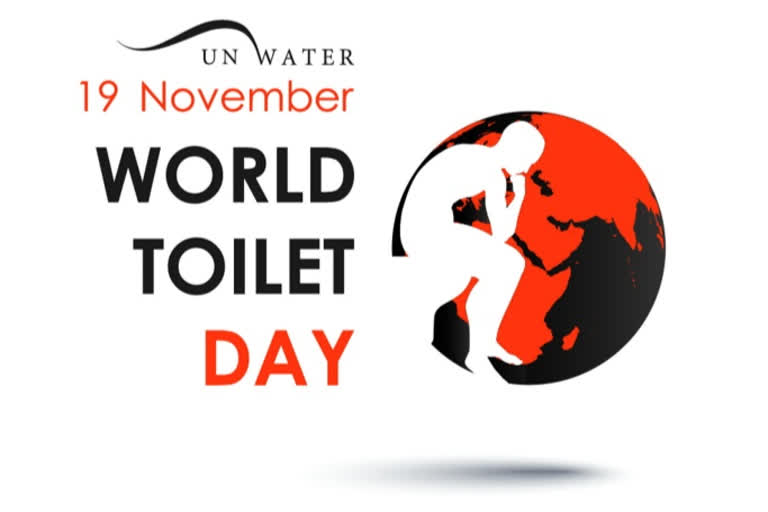Hyderabad: Every year November 19th is observed as World Toilet Day to raise awareness about inadequate sanitation systems and tackle the crisis of global sanitation. According to the UN, 3.6 billion people currently live without access to safely managed sanitation. UN-Water is the official convener of World Toilet Day. In 2013, UN-Water and the "Thematic Priority Area (TPA) on Drinking Water and Basic Sanitation" received the mandate to oversee World Toilet Day each year. World Toilet Day 2022 focuses on the impact of the sanitation crisis on groundwater.
UN's 2022 campaign 'Making the Invisible Visible', focuses on how inadequate sanitation systems spread human waste into rivers, lakes and soil, polluting underground water resources. According to the campaign, this problem seems to be invisible because it happens underground and it takes place in the poorest and most marginalized communities.
One of the most crucial messages of World Toilet Day 2022 is that safely managed sanitation protects groundwater from human waste pollution as groundwater is the world’s most abundant source of freshwater. It supports drinking water supplies, sanitation systems, farming, industry and ecosystems. As climate change worsens and populations grow, groundwater is vital for human survival. The UN states that safe sanitation protects groundwater. Toilets that are properly sited and connected to safely managed sanitation systems, can collect, treat and dispose of human waste, and help prevent human waste from spreading into groundwater.
Also read: World Population hits 8 Billion today!
The UN General Assembly declared World Toilet Day an official UN day in 2013 after Singapore had tabled the resolution (its first resolution before the UN's General Assembly of 193 member states). Currently, the world is seriously off track to meet the promise of Sustainable Development Goal (SDG) 6.2: to ensure safe toilets for all by 2030, according to United Nations Secretary-General António Guterres. This initiative urges governments to work on average four times faster to ensure SDG 6.2 is achieved on time, and policymakers are also called upon to fully recognize the connection between sanitation and groundwater in their plans to safeguard this vital water resource.
Sanitation must withstand climate change and toilets and sanitation systems must be built or adapted to cope with extreme weather conditions so that services always function and groundwater is protected. Sanitation action is an urgent need and humans are seriously off track to ensure safe toilets for all by 2030. With only eight years left, the world needs to work four times faster to meet the promise.
According to the Centers for Disease Control and Prevention (CDC), without clean, safe toilets, human waste (poop) can contaminate communities’ food and water sources, which increases people’s chances of getting sick. When people don’t have access to a toilet, they go outside in the open (called open defecation). Around the world, at least 892 million people continue to practice open defecation. This often causes the spread of diarrheal diseases. Each day, nearly 1,000 children die around the world from diarrhoea related to poor sanitation and contaminated water sources. Safe sanitation, the practice of good hygiene, and a safe water supply can save the lives of more than 350,000 children a year.
World Toilet Day is an opportunity to learn more about the global sanitation crisis and raise awareness in the community about the importance of sustainable sanitation to keep people healthy and learn more about other global water, sanitation, and hygiene (WASH) issues.



